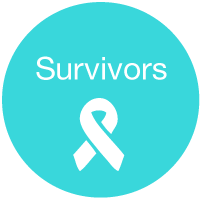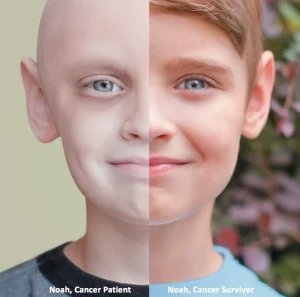
Diagnosed with Cancer? Your two greatest challenges are understanding cancer and understanding possible side effects from chemo and radiation. Knowledge is Power!
Learn about conventional, complementary, and integrative therapies.
Dealing with treatment side effects? Learn about evidence-based therapies to alleviate your symptoms.
Click the orange button to the right to learn more.
- You are here:
- Home »
- Blog »
- side effects ID and prevention »
- Childhood Cancer Survivors- Long-Term Morbidities
Childhood Cancer Survivors- Long-Term Morbidities

““The growing population of childhood cancer survivors carries a substantial burden of morbidity that is directly related to therapeutic exposures used to treat the primary cancer.1,2“
Childhood cancer survivors represent an accident waiting to happen. Or should I say accidents, as in many survivors with brain, heart damage, secondary cancers- in short a host of long-term disabilities resulting from the aggressive FDA approved safe and effective therapies approved to save their lives.
According to the studies linked below, it is not ALL survivors of childhood cancers…it is only about half of them. According to Children’s Cancer Cause, there are approximately 500,000 childhood cancer survivors alive today.
That means that there are about half of them, about 250.000 survivors walking around with one or more serious morbidities as a result from their cancer treatments.
At this point, it is important that I stress the point that I’m not saying that childhood cancer treatment should change to prevent long-term side effects. I can’t say this only because I don’t know enough to be able to say this.
What I am saying is that I have developed most every morbidity listed below and I have been able to stabilize or eliminate the health problem with evidence-based, non-conventional therapies such as
- nutrition
- supplementation and
- lifestyle therapies
On the one hand, I am amazed that studies such as the two posted below, are needed to explain the occurrence of long-term and late stage side effects aka morbidities for ANY cancer patients…much less childhood cancer patients.
On the other hand, I understand that conventional oncology has NO interest in studying and documenting the long-term, damaging results of toxic chemotherapy and radiation.
Are are you a childhood cancer survivor? Are you experiencing any of the morbidities listed below? Health problems that may not be listed?
I think my experience can help. Scroll down the page, post a question or comment and I will reply to you ASAP.
David Emerson
- Cancer Survivor
- Cancer Coach
- Director PeopleBeatingCancer
I have been researching and writing about long-term and late stage adverse events for years…
- AYA Cancer Survivors- Identify and Prevent Long-Term and Prevent…
- AYA, Childhood Cancer Survivors’ Future Risk of Heart Disease
- Pediatric Cancer Survivors Increasing, Most Have Morbidities
- Childhood Cancer Survivor? Plan for the worst, hope for the best
Symptom Clusters in Childhood Cancer Survivors
“The growing population of childhood cancer survivors carries a substantial burden of morbidity that is directly related to therapeutic exposures used to treat the primary cancer.1,2
Examples of chronic health conditions that contribute to this burden of morbidity include
- anthracycline-related heart failure,
- corticosteroid-related osteonecrosis,
- vincristine-related neuropathy,
- and cisplatin-related hearing loss,
- radiation-related complications including pulmonary dysfunction,
- subsequent neoplasms, and
- cognitive impairment.
Many survivors experience multiple morbidities.2 These morbidities can result in poor mental and physical well-being as well as poor physical performance…
Furthermore, these morbidities can often be associated with debilitating symptoms. Indeed, a study published in 2013 used the St Jude Lifetime Cohort to examine the association between the prevalence of symptoms and health-related quality of life (HRQL) in 1,600 adult survivors of childhood cancer.3 The study found that 87% of the survivors reported multiple symptom classes and that greater symptom prevalence was associated with poorer HRQL. Importantly, symptom classes influenced both physical and mental well-being…
In summary, this study provided important findings about a high prevalence of symptoms many years after cancer diagnosis. The study demonstrated that these symptoms have a significant association with physical performance, cognition, and HRQL.
In the next iteration of this study, it will be important to identify the association between symptoms and underlying diseases such that clinicians can not only relieve patients of their symptoms but also use these symptoms as guides to investigate the underlying disease pathology and provide effective interventions to address both. This is particularly possible in the St Jude Lifetime Cohort, where the cohort undergoes a comprehensive physical assessment to detect treatment-related late effects.
Thus, determining an association between cluster of symptoms and osteonecrosis or cardiomyopathy/heart failure or pulmonary fibrosis would be beneficial to the clinical practice, where an algorithm could be established to guide symptom-based screening practices (within the context of therapeutic exposures).
Associations of Symptom Clusters and Health Outcomes in Adult Survivors of Childhood Cancer: A Report From the St Jude Lifetime Cohort Study
Four symptom clusters were identified including-
- cluster 1 (prevalence 52.4%; low physical, somatization, and psychologic domains),
- cluster 2 (16.1%; low physical, moderate somatic, and high psychologic domains),
- cluster 3 (17.6%; high physical, moderate somatic, and low psychologic domains), and
- cluster 4 (13.9%; high in all three domains).
Compared with cluster 1, survivors in cluster 4 were more likely to have less than high school education (odds ratio [OR], 7.71; 95% CI, 4.46 to 13.31), no insurance (OR, 1.49; 95% CI, 1.04 to 2.13), and exposure to corticosteroids (OR, 1.76; 95% CI, 1.02 to 3.03); survivors in cluster 3 were more likely to have received platinum agents (OR, 2.22; 95% CI, 1.34 to 3.68) and brain radiation ≥ 30 Gy (OR, 3.99; 95% CI, 2.33 to 6.86). Survivors in cluster 4 reported the poorest Physical Component Summary/Mental Component Summary scores (31.0/26.7) and physical and neurocognitive performance versus survivors in the other clusters (P < .001).


